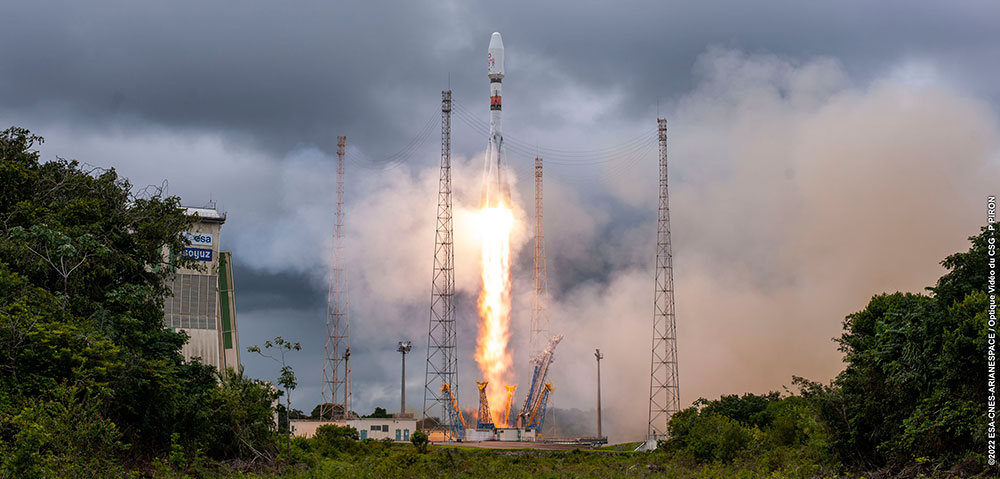
The European Union sanctions on Russia have caused the Russian space agency to stop the launches from French Guiana.
In response to EU sanctions against our enterprises, we are suspending cooperation with European partners in organizing space launches from the Kourou cosmodrome and withdrawing our personnel, including the consolidated launch crew, from French Guiana.
Russia is recalling 87 Russian workers from the South American spaceport in French Guiana who support Soyuz rocket launches, according to a second statement from the Russian government.
The issue of the departure of Russian employees is being worked out. The European Union nations, the United States and other countries have levied severe economic sanctions on Russia.
The International Space Station partnership could be destroyed by US sanctions, says the Russian space chief.
Russian rockets are used by Arianespace to launch satellites from the Guiana Space Center in French Guiana, as well as from the Baikonur Cosmodrome in Kazakhstan. The OneWeb internet satellites were carried on the most recent Soyuz rocket.
Arianespace uses its own European Ariane 5 heavy-lift rocket and Vega rocket for smaller launches from French Guiana.
The European Union's Galileo constellation of navigation satellites was to be launched by Arianespace in early April. Russia announced on Saturday that the mission will be delayed.
The European Commissioner for Space said that Russia's decision to halt Soyuz launches with Europe will not affect the Galileo satellites or the E.U.'s Copernicus Earth observation satellite program.
The decision does not affect the continuity and quality of the Galileo and Copernicus services.
In case of aggression, the E.U. and its member states are ready to act and will continue to develop Ariane 6.
The Ariane 6 rocket is Europe's successor to the Ariane 5 and is expected to make its first flight later in 2022. The Vega C rocket is a follow-on to Europe's Vega rocket that is designed to reach more orbits and carry more diverse payloads for the same cost. The Ariane 6 and Vega-C rockets are being developed by the European Space Agency and Arianespace.
The Director-General of the European Space Agency said in a statement that the European space officials were closely monitoring what was happening in Ukraine. The European ExoMars rover mission to Mars will be launched by the European Space Agency and the Russian space program.
In addition to calling off the launches from French Guiana, he also stated that he no longer felt a joint Russian-U.S. mission to Venus was necessary.
In a separate statement, he wrote that he found it "inappropriate" for the U.S. to continue to participate in the Russian Venus mission. NASA scientists began talks with Russia to take part in the Venera-D mission.
Follow him at@tariqjmalik or email him attmalik@space.com. Follow us on social media.